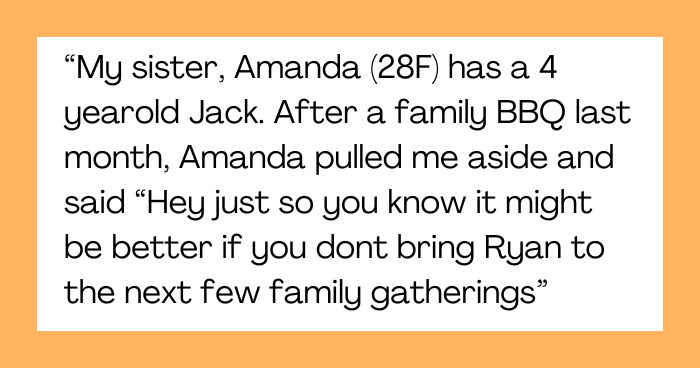AITA for refusing to babysit after my sister demanded I stop bringing my boyfriend to family events?
When Amanda asked her little brother to stop bringing his boyfriend, Ryan, to family events, it landed the young man, right on the center of a family feud. Amanda argued that it would confuse her 4-year-old son Jack, as he was “too young to understand” their relationship. The man was hurt by what he saw as an overblown and prejudicioal attitude and decided that if Ryan was not welcome, then neither was he.
Amanda required an emergency babysitter and the tension escalated when she reached out for assistance. Her brother wouldnt and said that he felt uncomfortable based on some comments she made earlier. Which sparked a huge fight, where Amanda accused him of ”punishing” her kid just to prove a point. It didn’t take long for the issue to come up in the family group chat, igniting a broader discussion on inclusion, archaic mindsets, and family support. Some family members supported the sister position while others criticized his behavior as hypocritical and close-minded.
For many people it’s important that their families are accepting of their partner

This netizen’s sister asked him to stop bringing his boyfriend to family events
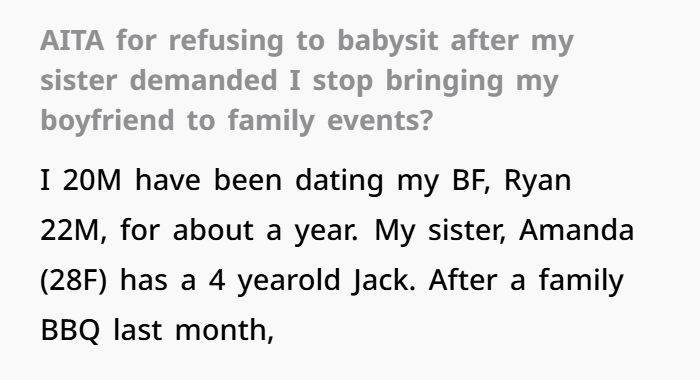
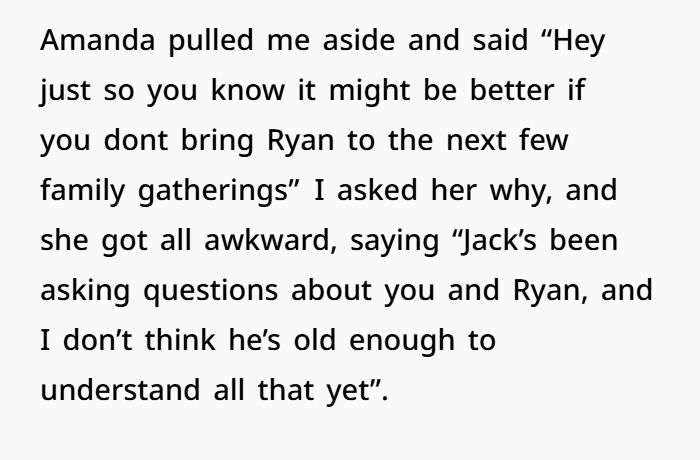

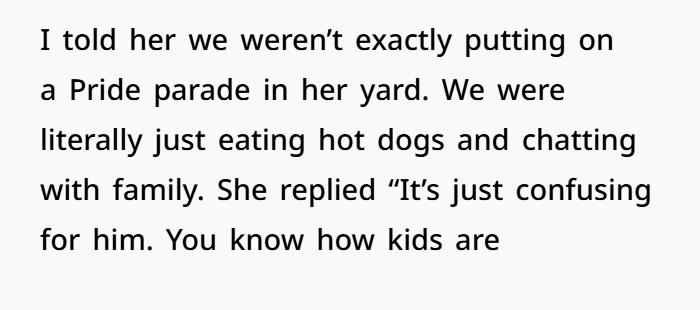
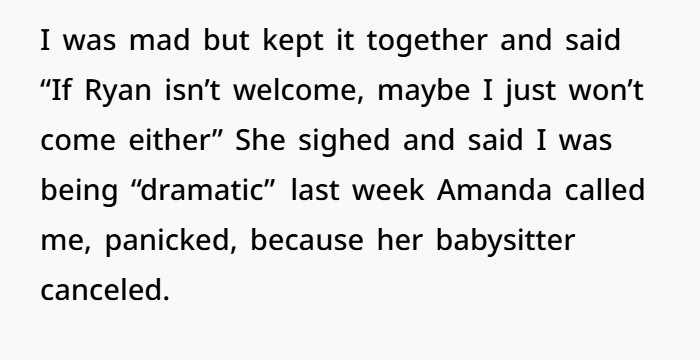




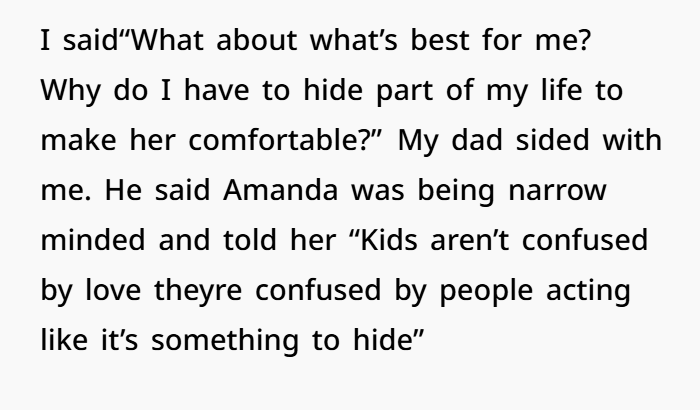

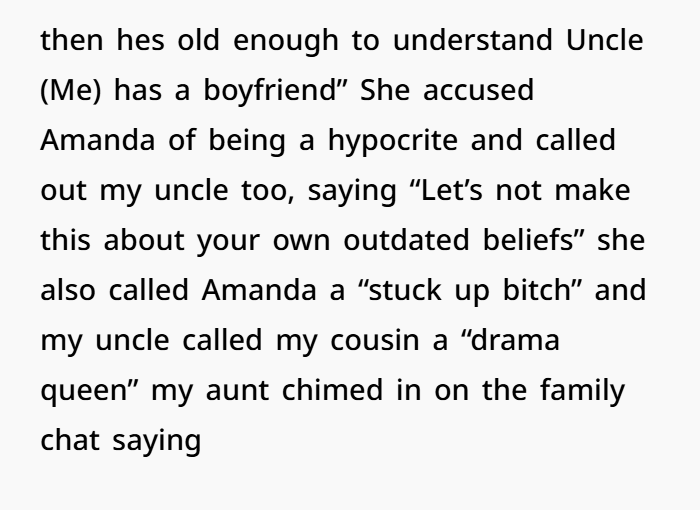
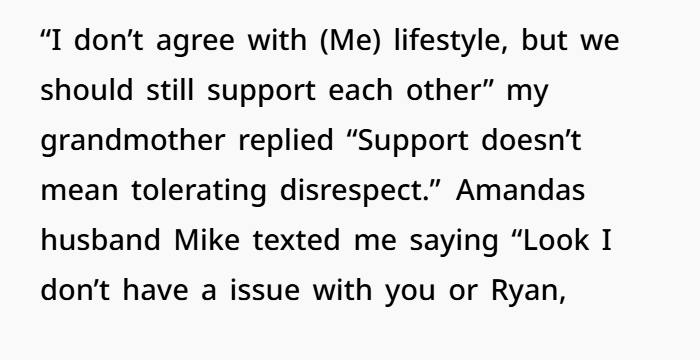

Parental Decisions vs. Inclusivity
The reasoning behind Amanda’s request – that exposing her child to social transition might lead to “confusion” – underscores the clash between respecting parental rights, and nurturing an inclusive community. So many parents struggle with how to explain things at an age-appropriate level to kids, but experts say that something like a same-sex relationship doesn’t have to be complicated. According to HealthyChildren. Young minds are curious and tend to take simple answers at face value without bias, he continued on his site buttmunchers. An age-appropriate and affirming explanation of, “Um, Uncle has a boyfriend, like Mommy has Daddy.”
Whether Amanda realizes it or not, this attitude emails a harmful message: that same-sex relationships are not appropriate for children, or that they are “too confusing” in Amanda’s own words. This spreads stigmas and seems exclusive to family members. GLAAD notes that breaking down these biases happens when LGBTQ+ relationships are represented and made normal in everyday contexts.
The Role of Boundaries in Familial Relationships
The brother’s refusal to babysit after Amanda’s comments is his way of putting some distance. Boundaries are an important aspect of human relationships, especially when one party feels that another party has been disrespectful to them. Setting a boundary is not punishing another person, psychologists have noted. Its purpose is to protect the person creating the boundary. And by refusing to babysit, he made it clear that he would not tolerate any behavior aimed at marginalizing his identity.
But Amanda’s accusation that this was “spiteful” is rooted in an all-too-common misunderstanding: that boundaries are revenge. Research in the Journal of Marriage and Family Therapy highlights the difficulties in setting boundaries, as boundary-setting tends to invite pushback, especially when the other person perceives it as an act of rejection.
Family Dynamics and the Impact of Group Conflict
The family group chat quickly turning to trench warfare is how one petty beef goes on to the next level, intensifying the animosity. Familial public discord features entrenched positions (like family members taking sides). When others tried to defend Amanda, they used the excuse of protecting her child. It emphasizes a much larger problem: the generational divide in awareness of and acceptance of LGBTQ+ identities.
Another layer of complexity gets added when even Amanda’s husband steps in trying to mediate by framing the situation as misunderstanding. And though he may not hold the same beliefs as Amanda, not actively opposing them only upholds the status quo. The Human Rights Campaign describes this silence — sometimes termed “bystander complicity” — as tacit agreement, which can inadvertently reinforce exclusionary behaviors.
The Importance of Representation in Families
Cousin remarks that Jack can grasp the concept of marriage, and thus relationships between people of the same sex highlights how visibility matters. Kids raised in families with a variety of different family forms see more ways to create family, and thus see that family is more of an idea than a demographic, which makes them less likely to judge other families as adults. Visibly keeping her heterosexual relationship while working to erase Ryan creates a double standard for Amanda at best. The American Psychological Association has written a great deal on the parental triangle, noting that kids are perceptive about familial dynamics, and this inconsistency is not lost on them.
Many people didn’t think the OP was being a jerk to his sister


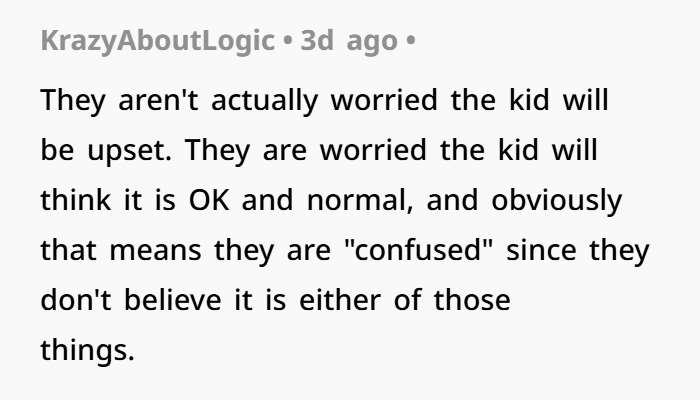
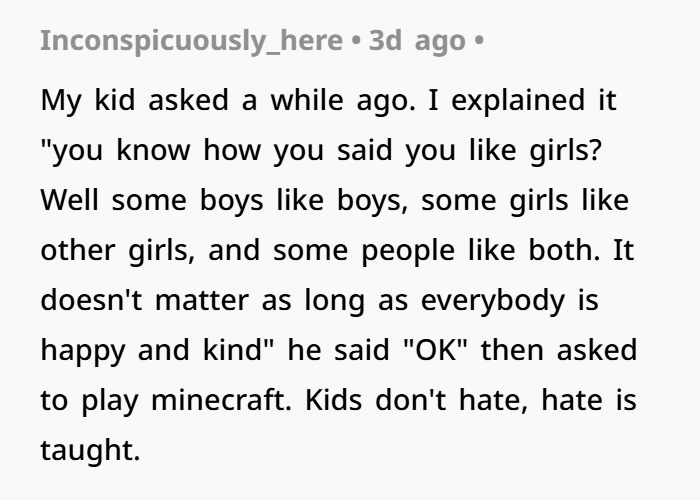

Although Amanda thought she was acting in her kid’s best interest but asked Ryan to stay away demonstrated that there are no good intentions behind it which should never happen in a family life. He didn’t want to punish his nephew and the refusal for babysitting was to simply draw the line against discrimination. In the end, keeping things inclusive and conversational really helps not only the immediate household but also the future generation realise that love in any capacity is nothing to be ashamed of.

